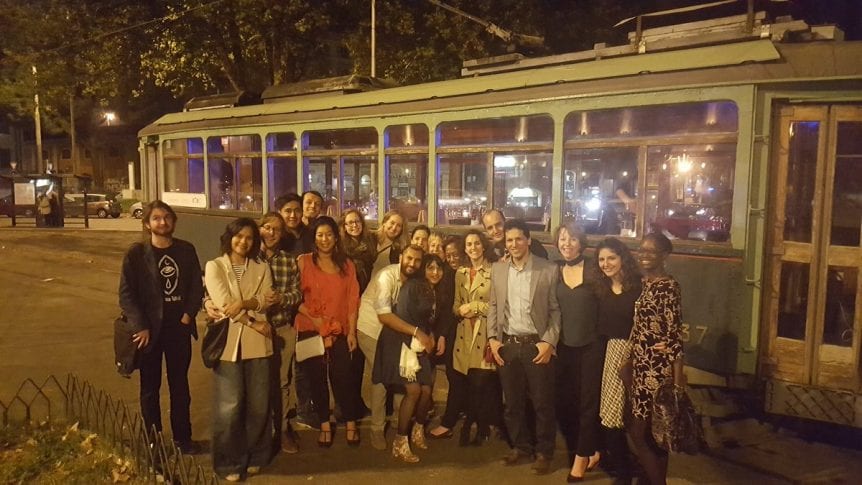Leland International Hunger Fellows usually serve their field year in nations experiencing high rates of food insecurity in Asia, Africa, and Latin America—so what is one member of the 9th Class of Leland Fellows doing in Boston, Massachusetts? In this Field Site Spotlight, we check in with April Dodd, who is working with Emerging Ag, Inc. Find out how her work is making an impact on representation for farmers at the highest levels of global food policy-making, and what makes her placement unique among the rest of her fellowship class.
I am working with Emerging Ag, Inc., a consulting firm that provides communication and public affairs services to clients on projects relating to agriculture, food, and health. As the Regional Coordinator of Partnerships, my goal is to increase farmer and small and medium-sized enterprise (SME) representation at regional and international conferences, such as the FAO Africa Regional Conference and the UN’s Committee on World Food Security (CFS). I also have the chance to work on other Emerging projects, including social media campaigns for the Prairie Oat Growers Association in Mexico and the Global Institute for Food Security.
An interesting element of working for Emerging is that the entire team works remotely; my colleagues are based all over the world, and my home base in both the field and policy years will be Boston, Massachusetts. In addition, my field and policy years are blended together, in that my work over both of the years will consist of behind-the-scenes policy work with occasional travel to conferences and project sites sprinkled throughout. I spent two months in fall 2017 in Rome, Italy, getting acquainted with the Food and Agriculture Organization (FAO) headquarters, where I will return for various conferences and events over the course of the fellowship.
Adjusting to the unique bureaucracies and interpersonal politics of the FAO has definitely been a challenge of the first months, but my new team is incredibly gracious and supportive. Despite being spread across 10 time zones (or more, when the team is traveling), the team feels more communicative and connected than some organizations where everyone shares the same physical office. I was definitely concerned, at first, about the isolation of working alone, but those fears quickly dissipated as I learned about all the systems in place to keep us in touch with each other.
Already, I have had the opportunity to coordinate delegations to two important FAO-sponsored events. In October, I helped to facilitate sponsorship of four farmers and SME representatives (from Mexico, Ghana, Kenya, and Indonesia) at CFS in Rome, which was a great success: the four of them, along with eight other sponsored farmers, really made the most of the event, and our team got a lot of great feedback afterwards about how refreshing it was to have “actual farmers” in attendance. (The fact that 2017 marks the first year with a significant farmer presence at the world’s largest food security conference is profoundly alarming.) Then, in November, I co-coordinated attendance of seven farmers (from Kenya, Uganda, Zimbabwe, South Africa, and Ghana) at the Africa Regional Biotech Meeting in Addis Ababa. They too advocated really well for positive private-public partnerships and for science-based interpretations of biotechnology and agroecology, two very sensitive topics in agricultural policy-making. It’s immensely satisfying to be a part of a team that amplifies farmer and SME voices at high-level conferences.
Over the course of my field year, I hope to meaningfully contribute to the creation of a network of African private sector actors from all along the food value chain. This group, which will hopefully be replicated in Latin America and the Near East later, will work together to identify, problem-solve, and advocate for problems of specific regional importance at global policy-making meetings and conferences. So much of FAO’s operations, and by association so much of the agricultural policy that is put in place on the global scale, is deeply rooted in Rome; this is clearly a problem, as many of those who will be most affected by those policies simply cannot travel to Rome for negotiations. Empowering regional groups to organize, helping them to identify key issues of local priority, and assisting them in sending strategic delegations to major conferences and meetings is our contribution to policy-making that acknowledges the unique strengths and challenges of different parts of the world. I certainly feel like I’m still climbing a steep learning curve, but what I’ve learned so far has been incredibly compelling.

